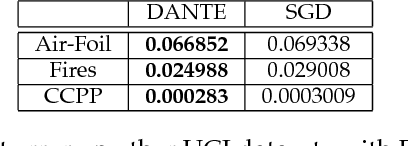Surya Teja Chavali
Grammar Detection for Sentiment Analysis through Improved Viterbi Algorithm
May 26, 2022


Abstract:Grammar Detection, also referred to as Parts of Speech Tagging of raw text, is considered an underlying building block of the various Natural Language Processing pipelines like named entity recognition, question answering, and sentiment analysis. In short, forgiven a sentence, Parts of Speech tagging is the task of specifying and tagging each word of a sentence with nouns, verbs, adjectives, adverbs, and more. Sentiment Analysis may well be a procedure accustomed to determining if a given sentence's emotional tone is neutral, positive or negative. To assign polarity scores to the thesis or entities within phrase, in-text analysis and analytics, machine learning and natural language processing, approaches are incorporated. This Sentiment Analysis using POS tagger helps us urge a summary of the broader public over a specific topic. For this, we are using the Viterbi algorithm, Hidden Markov Model, Constraint based Viterbi algorithm for POS tagging. By comparing the accuracies, we select the foremost accurate result of the model for Sentiment Analysis for determining the character of the sentence.
DANTE: Deep AlterNations for Training nEural networks
Feb 01, 2019



Abstract:We present DANTE, a novel method for training neural networks using the alternating minimization principle. DANTE provides an alternate perspective to traditional gradient-based backpropagation techniques commonly used to train deep networks. It utilizes an adaptation of quasi-convexity to cast training a neural network as a bi-quasi-convex optimization problem. We show that for neural network configurations with both differentiable (e.g. sigmoid) and non-differentiable (e.g. ReLU) activation functions, we can perform the alternations very effectively. DANTE can also be extended to networks with multiple hidden layers. In experiments on standard datasets, neural networks trained using the proposed method were found to be very promising and competitive to traditional backpropagation techniques, both in terms of quality of the solution, as well as training speed.
 Add to Chrome
Add to Chrome Add to Firefox
Add to Firefox Add to Edge
Add to Edge